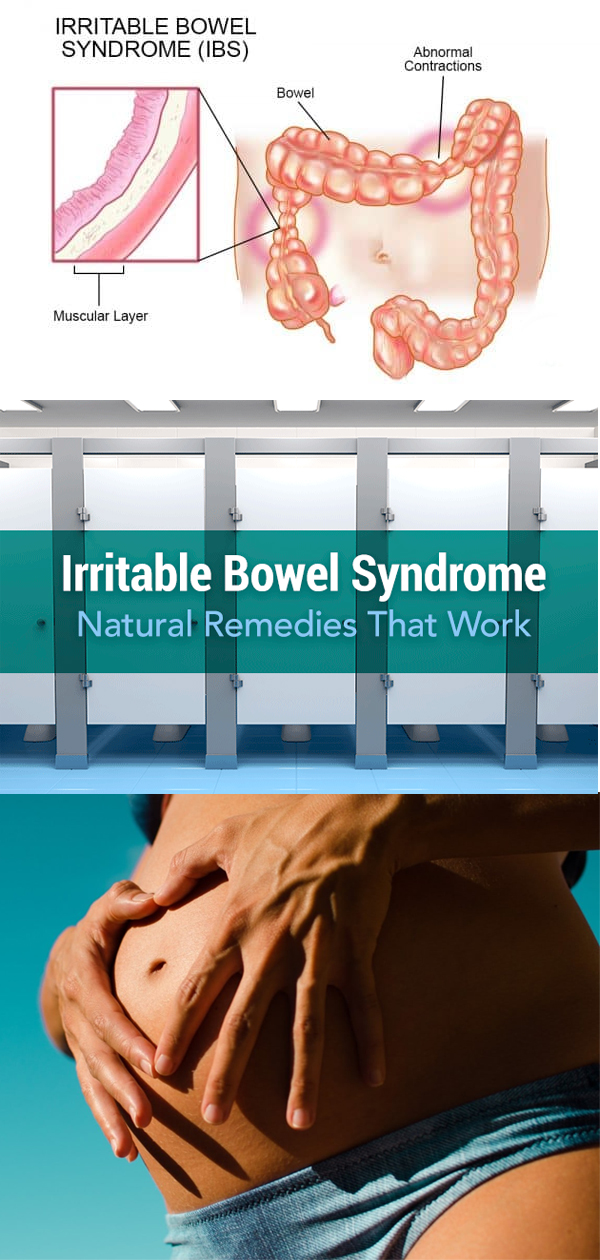According to the International Foundation for Functional Gastrointestinal Disorders, irritable bowel syndrome (IBS) affects between 10 – 15 percent of the population. It’s characterized by gas, cramping, bloating, abdominal pain and other digestive issues.
Given the nature of the symptoms, many people don’t even realize that they have IBS. It’s very common for even chronic sufferers to write off their discomfort as a “sensitive stomach” or “something that they ate.”
Don’t make this mistake! If you suspect that you have IBS, there are things that you can do to minimize your symptoms and live a happier, healthier life.
However, the first step is actually diagnosing your condition. Here are the IBS symptoms that you’ll want to take to a doctor.
1. Persistent Abdominal Pain
Everyone gets a stomachache now and then, but if you’re experiencing abdominal pain multiple times per week, there’s more going on than a bad burrito.
Try to define your pain. Is it sharp or dull? Does it sting, stab or throb? Where is it located? This can help you distinguish IBS from other issues like appendicitis and gastroenteritis.
One of the biggest signs of irritable bowel syndrome is when you feel relief after a bowel movement. If the pain goes away once your digestive track is clear, the issue is probably with your digestive track in the first place.
While there’s no quick fix for abdominal pain, you can try to get to the bottom of it by tracking your daily food consumption. People with IBS have different “triggers” for their condition, so if you notice that you always feel worse after eating certain things, you can start to avoid them or find recipe substitutes.
2. Unusual Stools
Your bathroom habits can tell you a lot about your digestive health, especially when it comes to IBS. You’ll want to pay attention to the state of your stools if you suspect that you have something going on in your gut.
It can also help to understand how waste moves through the body. In healthy individuals, it travels through the intestines at a steady, unremarkable pace, and bowel movements are both regular and pain-free.
On the other hand, if you have IBS, the waste might move through your intestines too slowly or too quickly. It might absorb different amounts of water along the way, so it might come out of your body feeling overly hard or soft.
The best way to tackle this issue is to increase your probiotic intake. Probiotics are healthy strains of bacteria that can improve the state of your gut. They can be taken in supplement form or consumed through certain foods like yogurt, tempeh, miso, sauerkraut, and cottage cheese, so you’ll have plenty of options moving forward.
3. Diarrhea
It isn’t pleasant, but diarrhea is one of the most common IBS symptoms. More than a third of IBS patients say that they experience it regularly.
It can be hard to link diarrhea to irritable bowel syndrome since it’s also connected to other digestive issues such as Crohn’s disease. By itself, it might not be enough to diagnose IBS. If you’re experiencing other symptoms on this list in conjunction with diarrhea, however, it’s probably a sign of bigger things.
The solution for loose and watery stools is to watch your fiber consumption. Insoluble fibers will worsen it; they encourage bowel movements, so they’re recommended for constipation and not diarrhea. On the other hand, soluble fibers can help to firm things up and get your bowel movements back on a set schedule.
Here are some examples of insoluble fibers that you’ll want to avoid:
– Cereal
– Beans
– Seeds
– Whole wheat flour
– Vegetable peels
Here are soluble fibers that you can safely add to your diet:
– Oats
– Barley
– Whole wheat bread
– Brown rice
– Dried fruits
4. Constipation
On the flip side, if your IBS isn’t causing diarrhea, it might be causing constipation. Nearly half of IBS patients have problems with hard or painful stools that get caught in the digestive tract.
The good news is that there are many ways to ease constipation. The most common piece of advice is to eat more fiber, but as previously mentioned, you’ll need to be careful with the type of fiber that you add to your diet.
You can also try various home remedies to soften the hard stools associated with irritable bowel syndrome. For example, water with lemon is an old trick that can stimulate the enzymes in your gut. Fish oil will give you a boost of omega-3 fatty acids that might help with digestive issues.
Constipation is also commonly linked with magnesium deficiency, so you might try filling your pantry with magnesium-rich foods like legumes, avocados and dark chocolate. It won’t fix your IBS, but it might lessen the frequency of your IBS symptoms.
5. Bloating And Cramping
A whopping 83 percent of IBS patients report problems with bloating and cramping. Most of these issues are related to the release, blockage, and build-up of gas, but they can have other internal causes as well.
Bloating is one of the most difficult IBS symptoms to control since it’s so common and general. However, one potential solution is to learn more about FODMAPs.
Officially known as “Fermentable Oligosaccharides, Disaccharides, Monosaccharides, and Polyols,” FODMAPs are certain types of molecules that are hard to break down and absorb in the body. They’re most commonly found in carbohydrates and can cause problems for IBS and non-IBS sufferers alike.
Low-FODMAP diets can ease things like gas and bloat. High-FODMAP diets can make them worse. You’ll need to do some research to create a good diet plan, but here’s a quick list to get you started.
Low-FODMAP foods:
– Eggs
– Citrus fruits
– Herbs and spices
– Leafy greens
– Most types of seafood
High-FODMAP foods:
– Dairy products
– Artificial sweeteners
– Anything with high-fructose corn syrup
6. Rectal Bleeding
This can be one of the scariest symptoms of IBS. No one likes seeing blood in the toilet! Before you rush to the emergency room, however, you should know that blood in your stool isn’t an automatic crisis.
For starters, it might be coming from a tear in your anal passage that has nothing to do with your bowels or intestines. Are you constipated a lot? Do you strain? You might have caused small fissures down there, and while they won’t be comfortable, they’re nothing to worry about. They’ll heal quickly and without medical intervention.
Another possibility is hemorrhoids. They can build up if you spend a lot of time on the toilet with a digestive issue. Some might be serious enough to need professional treatment, but most can be managed at home.
If you’re truly worried about the blood in your stool, go ahead and schedule an appointment with your doctor as soon as possible. But you’ll probably be okay to wait a few days and see if it clears up on its own. The tears might heal; the hemorrhoids might fade. Rectal bleeding is a common symptom of IBS, but it doesn’t have to be a panic-inducing one.
7. Fatigue
Are you tired all of the time? Do you sleep poorly at night or suffer from excessive daytime sleepiness? Do you wish that you had more energy for your favorite activities?
Fatigue is one of the most pervasive symptoms of IBS. It isn’t clear if the IBS itself causes exhaustion or if people are simply exhausted by dealing with it, but the end result is the same. If you have IBS, you’re probably tired a lot.
Fortunately, there are foods that can improve both your mood and your zest for life. While they might not turn you into the Energizer Bunny, they can stabilize your blood sugar, stimulate your adrenal glands and put more pep in your step.
Here are some high-energy foods:
– Bananas
– Quinoa
– Goji berries
– Brown rice
– Sweet potatoes
– Tuna
One thing to note is that you’ll want to steer clear of caffeine. It isn’t healthy to begin with, and too much coffee and tea can make your irritable bowel syndrome flare up even worse than usual.
8. Lower Back Pain
This is one of the lesser-known irritable bowel syndrome symptoms, but it can still be a significant source of stress and anxiety for those who experience it.
Back pain associated with IBS is usually called “referred pain.” This means that the pain isn’t felt where it actually originates. In the case of IBS, it’s the belly that’s causing all of the trouble, but the lower back is where certain people feel it.
Researchers aren’t sure why this happens. It might have to do with crossed wires in the brain-gut pathway; it might be related to the close proximity of all of the organs in the lower body and how people interpret pain radiating from that area.
Regardless of the cause, however, if you feel stiffness or soreness in your back, it might be a sign of IBS. Talk to your doctor to be sure.
Final Thoughts On Irritable Bowel Syndrome
While there’s no cure for IBS, there are plenty of ways that you can manage your symptoms and improve your quality of life. The first step is figuring out a diet that balances both your nutritional needs and your digestive issues, but there are other steps that you can take as well. Don’t be afraid to branch out and do more research on irritable bowel syndrome. You never know when you might stumble on a solution that really works for you!


